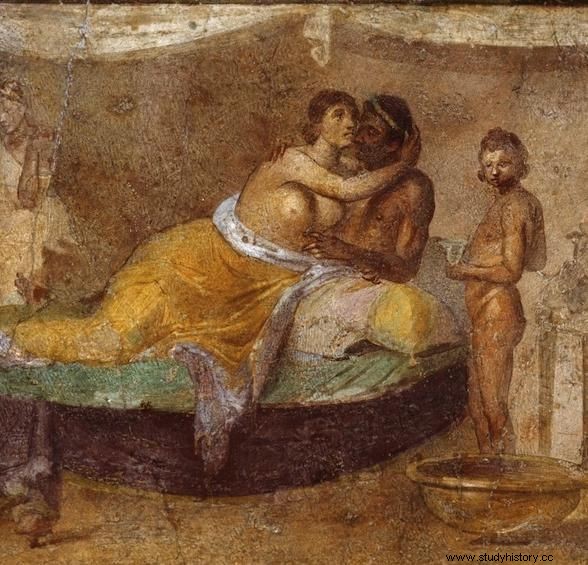Satisfying sexual desires on the one hand, and preventing pregnancy on the other. Contraception, sometimes referred to as fertility control, has been in use since ancient times. Some of the practices, despite their purported effectiveness, may have really shocked.
Crocodile filth
In Egypt, under the rule of the pharaohs, medical functions were often associated with the sacred rite. Hence, priests and shamans performed the function of healers, thanks to which people could maintain their vital energies. The methods, however, were somewhat surprising. For example, it has been suggested that fresh animal flesh should be applied to serious head wounds. Rather, they were not the guts of a crocodile, which was considered a representative of the sacred reptiles - after all, Sobek, a symbol of royal strength, guardian of lakes and waters, was depicted as a man with the head of a crocodile. And sometimes a crocodile with the head of a falcon, jackal or lion.

Contraception methods in antiquity were sometimes… surprising
However, it was in the crocodile's faeces that the substance was supposed to be found, thanks to which women protected themselves from unwanted pregnancy. Properly dried feces had to be inserted into the patient's vagina. The animal mix combined with the woman's body temperature was supposed to dissolve in a process that resulted in a natural - however it sounds - a biological barrier. Elephant droppings were also used as a substitute, and squeezed juice from lemon halves, syrup from crushed dates or tree juices was to be equally effective. It was also believed that a woman's vagina should be filled with resin so that animal feces would fill the internal reproductive organs.
Oil and wild carrot
In the cradle of European civilization, Greece, the harmony between body and spirit formed the basis of some philosophical systems. And what about the laws of medicine, whose patron is Hippocrates, the patron saint of doctors, called one of the precursors of the modern field of health knowledge? It turns out that faith, folk wisdom and superstition were sometimes combined with pure knowledge and empiricism.
According to Aristotle, olive oil was a proven contraceptive, the natural properties of which could have a miraculous effect on women. Interestingly, many centuries later, in 1938, Marie Stopes, a Scottish palaeobiologist, feminist, one of the pioneers in pregnancy prevention research, came to similar conclusions .
The aforementioned Hippocrates, who deepened his knowledge by traveling, among others, in Egypt and Asia Minor, proved something else. The so-called wild carrot, known as the herb of Queen Anne, was, according to the ancient sage, an extremely effective abortion aid - administered orally - which was confirmed by laboratory tests carried out already in the 20th century.

Some ancient methods of avoiding pregnancy were even dangerous to health and life
Mechanical traps, mercury and grenades
Other medics, such as the Soranos of Ephesus, suggested more radical solutions - creating mechanical valves that allowed women to close the opening of the outer cervix . For the painful procedure, however, special substances were needed, such as pomegranate juice, to properly lubricate the tool.
Roman women, on the other hand, allowed themselves to conduct experiments in which were used corks made of natural plant roots, as well as specially shaped balls of animal excrement . Vaginal wool tampons used in both Greece and the Roman Empire were also popular.
Asian women also knew non-obvious - at least from today's point of view - ways to stop biological processes. In the Far East, pre-prepared bamboo paper molds and pomegranate peels were used, among others. To prevent an unwanted pregnancy, Chinese women made a real sacrifice. There were many times when drank hot mercury, which could result in a miscarriage , but most often the real devastation of internal organs, which was associated with death in torture. The men chose to eat papaya seeds to reduce the amount of sperm in the body.

Some of the contraceptive methods are shocking to this day
Looking for a way to sin
In ancient times, when knowledge was often inextricably linked with faith, the methods of dealing with contraception may be astounding today, although - it is worth emphasizing - often proved to be effective. Medical practices based on herbal medicine, folk wisdom, but also more and more often written philosophical tracts, gave room for experimentation. Their price, however, was life and health. In subsequent epochs, eroticism, sinful pleasures, evolved into still other forms. Hence, contraceptives were sometimes strange, ridiculous, but also deadly.
